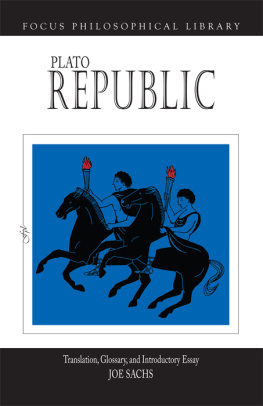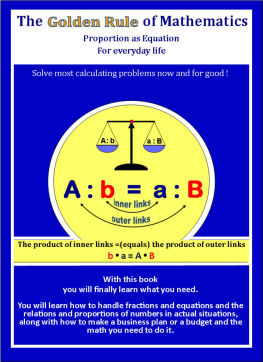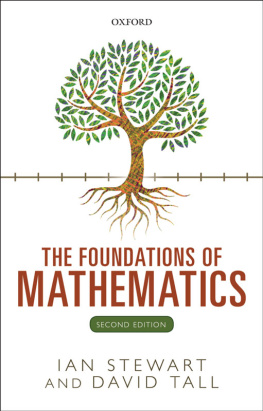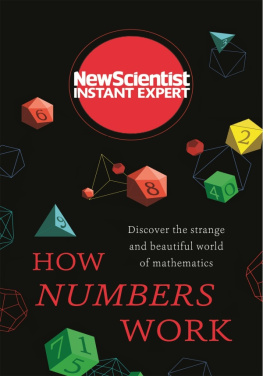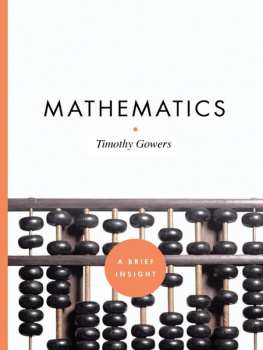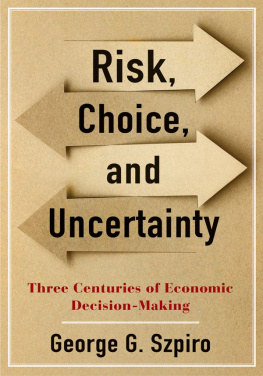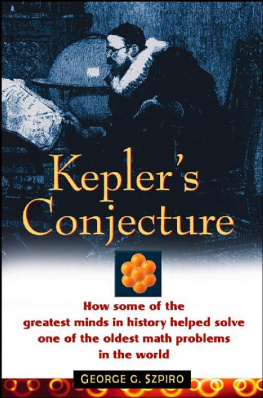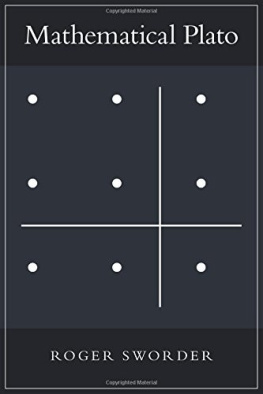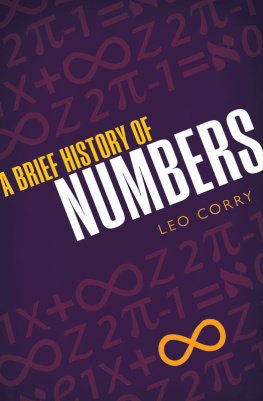Szpiro - NUMBERS RULE: the vexing mathematics of democracy,from plato to the present
Here you can read online Szpiro - NUMBERS RULE: the vexing mathematics of democracy,from plato to the present full text of the book (entire story) in english for free. Download pdf and epub, get meaning, cover and reviews about this ebook. year: 2020, publisher: Princeton University Press, genre: Romance novel. Description of the work, (preface) as well as reviews are available. Best literature library LitArk.com created for fans of good reading and offers a wide selection of genres:
Romance novel
Science fiction
Adventure
Detective
Science
History
Home and family
Prose
Art
Politics
Computer
Non-fiction
Religion
Business
Children
Humor
Choose a favorite category and find really read worthwhile books. Enjoy immersion in the world of imagination, feel the emotions of the characters or learn something new for yourself, make an fascinating discovery.

- Book:NUMBERS RULE: the vexing mathematics of democracy,from plato to the present
- Author:
- Publisher:Princeton University Press
- Genre:
- Year:2020
- Rating:3 / 5
- Favourites:Add to favourites
- Your mark:
- 60
- 1
- 2
- 3
- 4
- 5
NUMBERS RULE: the vexing mathematics of democracy,from plato to the present: summary, description and annotation
We offer to read an annotation, description, summary or preface (depends on what the author of the book "NUMBERS RULE: the vexing mathematics of democracy,from plato to the present" wrote himself). If you haven't found the necessary information about the book — write in the comments, we will try to find it.
Szpiro: author's other books
Who wrote NUMBERS RULE: the vexing mathematics of democracy,from plato to the present? Find out the surname, the name of the author of the book and a list of all author's works by series.
NUMBERS RULE: the vexing mathematics of democracy,from plato to the present — read online for free the complete book (whole text) full work
Below is the text of the book, divided by pages. System saving the place of the last page read, allows you to conveniently read the book "NUMBERS RULE: the vexing mathematics of democracy,from plato to the present" online for free, without having to search again every time where you left off. Put a bookmark, and you can go to the page where you finished reading at any time.
Font size:
Interval:
Bookmark:
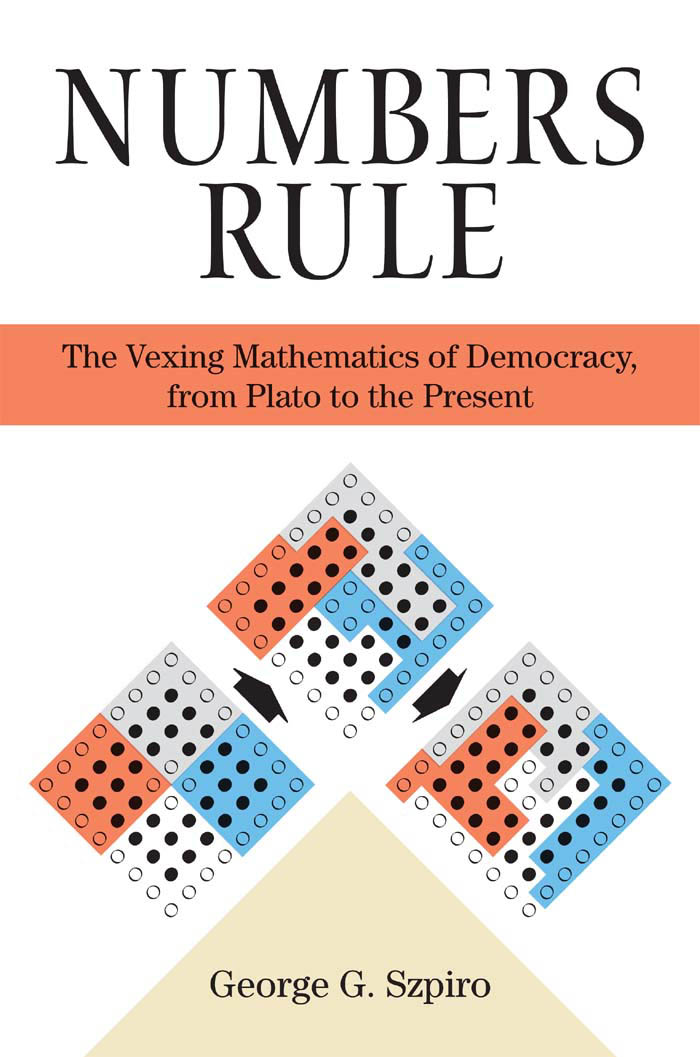
NUMBERS RULE
RULE
The Vexing Mathematics of Democracy,
from Plato to the Present
George G. Szpiro
PRINCETON UNIVERSITY PRESS
PRINCETON AND OXFORD
Copyright 2010 by George G. Szpiro
Published by Princeton University Press, 41 William Street, Princeton, New Jersey 08540
In the United Kingdom: Princeton University Press, 6 Oxford Street, Woodstock,
Oxfordshire OX20 1TW
All Rights Reserved
Library of Congress Cataloging-in-Publication Data
Szpiro, George, 1950
Numbers rule : the vexing mathematics of democracy, from Plato to the
present George G. Szpiro / George G. Szpiro.
p. cm.
Includes bibliographical references and index.
ISBN 978-0-691-13994-4 (alk. paper)
1. MathematicsAnecdotes. I. Title.
QA99.S97 2010
510dc22 2009028615
British Library Cataloging-in-Publication Data is available
This book has been composed in Century
Printed on acid-free paper.
press.princeton.edu
Printed in the United States of America
1 3 5 7 9 10 8 6 4 2
Dedicated to Sarit and Nir
At the start of the new chapter in their lives
(Until 120!)
I t may come as a surprise to many readers that our democratic institutions and the instruments to implement the will of the people are by no means foolproof. In fact, they may have strange consequences. One example is the so-called Condorcet Paradox. Named after the eighteenth-century French nobleman Jean-Marie Marquis de Condorcet, it refers to the surprising fact that majority voting, dear to us since times immemorial, can lead to seemingly paradoxical behavior. I do not want to let the cat out of the bag just yet by giving away what this paradox is. Suffice it to say for now that this conundrum has kept mathematicians, statisticians, political scientists, and economists busy for two centuriesto no avail. Worse, toward the middle of the twentieth century, the Nobel Prize winner Kenneth Arrow proved mathematically that paradoxes are unavoidable and that every voting mechanism, except one, has inconsistencies. As if that were not enough, a few years later, Allan Gibbard and Mark Sat-terthwaite showed that every voting mechanism, except one, can be manipulated. Unfortunately, the only method of government that avoids paradoxes, inconsistencies, and manipulations is a dictatorship.
There is more bad news. The allocation of seats to a parliament, say to the U.S. Congress, poses further enigmas. Since delegations must consist of whole persons, they must be integer numbers. How many representatives should be sent to Congress, for example, if a state is due 33.6 seats? Should it be thirty-three or thirty-four congresspeople? Simple rounding will usually not work because in the end, the total number may not add exactly to the required 435 congressmen. Alternative suggestions have been made, in the United States as well as in other countries, but they are fraught with problems, some methods favoring small states others favoring big states. And that is not the worst of it. Under certain circumstances, some states may actually lose seats if the size of the House is increased. (This bizarre situation has become notorious under the designation Alabama Paradox.) Other absurdities are known as the Population Paradox and the New State Paradox. Politicians, scientists, and the courts have been battling with the problems for centuries. But similarly to Arrows Theorem, it finally turned out that no solution to the problem exists. The mathematicians Peyton Young and Michel Balinski proved that there are no good or correct methods to allocate seats to Congress or any other parliament.
This book is an elucidation and a historical account of the problems and dangers that are inherent in the most cherished instruments of democracies. The narrative starts two and a half millennia ago, with ancient the Ancient Greek and Roman thinkers Plato and Pliny the Younger, continues to the churchmen of the Middle Ages Ramon Llull and Nicolaus Kues, goes on to heroes and victims of the French Revolution Jean-Charles de Borda and the Marquis de Condorcet, and from there turns to the Founding Fathers and ends with modern-day scholars like Arrow, Gib-bard, Satterthwaite, Young, and Balinski
I have written this book for a general readership, my aim being to introduce readers to the subject matter in an entertaining way. Hence it is by no means a textbook but may serve as accompanying literature for a more rigorous course in political science, economics, administration, philosophy, or decision theory. Much weight has been given to the personalities who have been involved during the past two and a half millennia in the endeavor to understand the problems and in the attempts to correct them. In order not to disturb the flow of the text, however, material about the dramatis personae and their times is often consigned to an additional reading section at the end of the chapters.
While expounding on the blithe aspects of the subject matter, I do not at all make light of its importance and of the serious difficulties. But even though the issues are very deep, the arguments never involve anything but the most basic mathematics. In fact, readers need not have more knowledge of mathematics than what they learned in junior high school. It is inherent in the problems that the mathematics never moves beyond simple arithmetic. But let the reader not be deceived by this apparent simplicity; the questions are surprisingly deep and the arguments amazingly sophisticated.
Many people have been very generous with help and guidance. Unfortunately, I cannot list them all here for a simple, if unpleasant, reason: my e-mail archive got corrupted and I have been unable to reestablish the correspondence with people whose advice I sought while writing this book. I sincerely apologize. Those whose e-mails I could find are: Kenneth Arrow, Michel Balinski, Daniel Barbiero, Anthony Bonner, Robert Inman, Eli Passow, Friedrich Pukelsheim, Christoph Riedweg, and Peyton Young. I would also like to thank Vickie Kearn, Anna Pierrehumbert, and Heath Renfroe from Princeton University Press and freelancer Dawn Hall for diligent editing; three referees for painstaking reviews; and, as always, my agent Ed Knappman who also came up with the books catchy subtitle.
While revising the manuscript, I spent a one-month sabbatical at the Rockefeller Foundations Bellagio Study and Conference Center. Bellagio is a beautiful village on the shore of Lake Como in Italy that was once the property of none other than the hero of , Pliny the Younger. He described it as such: Set high on a cliff... it enjoys a broad view of the lake which is divided in two by the ridge on which it stands.... From the spacious terrace, the descent to the lake is gentle.... You may gather from this that Pliny was in love with the place, and so were my wife and I. I am very grateful to the Rockefeller Foundation for having afforded us the occasion to walk in the footsteps of Pliny the Younger... and to put the finishing touches to this book.
Jerusalem, May 2009
NUMBERS RULE
P lato, son of Ariston and Perictione, has been called the greatest of Greek philosophers by his admirers and chastised as the worst anti-democrat by his detractors. Socrates most brilliant student, Plato devoted his life to studying and teaching, to exploring the meaning of life, inquiring into the nature of justice, and pondering how to be a better person.
His real name may have been Aristocles with the nickname Platomeaning broadgiven to him because of his wide forehead or because of his wide-ranging intellectual pursuits. He was born in 427 BC in or near Athens. Plato had two brothers, Glucon and Adeimantus, and a sister Po-tone. When he was still a boy, his father died and his mother married her uncle Pyrilampes, with whom she had another son, Platos half-brother Antiphon. Plato received a first-class education in gymnastics, music, poetry, rhetoric, and mathematics, and tried his hand as a playwright. When he became older and a bit more knowledgeable about poetry, he would burn all his plays.
Font size:
Interval:
Bookmark:
Similar books «NUMBERS RULE: the vexing mathematics of democracy,from plato to the present»
Look at similar books to NUMBERS RULE: the vexing mathematics of democracy,from plato to the present. We have selected literature similar in name and meaning in the hope of providing readers with more options to find new, interesting, not yet read works.
Discussion, reviews of the book NUMBERS RULE: the vexing mathematics of democracy,from plato to the present and just readers' own opinions. Leave your comments, write what you think about the work, its meaning or the main characters. Specify what exactly you liked and what you didn't like, and why you think so.

